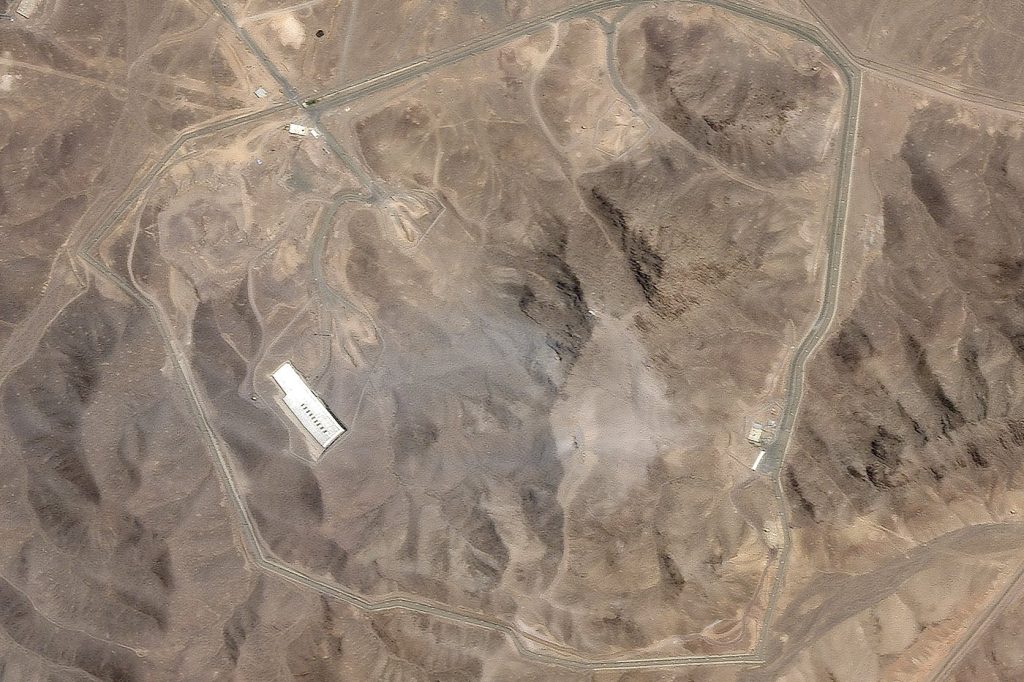DUBAI, United Arab Emirates (AP) – In a significant escalation of military involvement in the Middle East, the United States launched airstrikes targeting three nuclear sites in Iran on Sunday, June 22, 2025. This operation is part of Israel's ongoing campaign to dismantle Iran's nuclear program. President Donald Trump, addressing the nation from the White House, announced that Iran’s key nuclear facilities at Fordo, Isfahan, and Natanz were "completely and fully obliterated," igniting concerns about a broader regional conflict as Iran condemned the U.S. actions as "a dangerous war."
Iran's Foreign Minister, Abbas Araghchi, swiftly labeled the strikes as a point of no return in diplomatic relations. He declared that Iran had the unequivocal right to defend itself and condemned the U.S. for what he described as an unprecedented act of aggression. "The warmongering, lawless administration in Washington is solely responsible for the dangerous consequences," Araghchi stated during a press conference in Turkey. He emphasized that the U.S. had crossed significant red lines by targeting Iran's nuclear facilities.
The Atomic Energy Organization of Iran confirmed that the strikes had occurred, asserting that the country’s nuclear program would not be derailed. Despite the destruction, both Iran and the U.N. nuclear watchdog reported no immediate signs of radioactive contamination at the sites affected by the strikes. Satellite imagery post-attack indicated damage to the entrances of the Fordo facility, suggesting that access to the site would require extensive excavation efforts.
As tensions escalated, Iran's paramilitary Revolutionary Guard retaliated with a barrage of 40 missiles aimed at Israel. Reports indicated that over 80 Israeli citizens sustained mostly minor injuries, with significant damage inflicted on buildings in Tel Aviv. In response, the Israeli military confirmed that they had "swiftly neutralized" the Iranian missile launchers and initiated a series of strikes against Iranian military targets.
Trump's decision to engage militarily marks a marked departure from his earlier stance of avoiding costly foreign conflicts. While his administration had initially sought a diplomatic solution to curb Iran’s nuclear advancements, the recent Israeli strikes had weakened Iran's defenses, prompting the U.S. to capitalize on what officials described as an unparalleled opportunity to thwart Iran's nuclear ambitions. Trump, pressured by Israeli officials and several Republican lawmakers, justified the military action as necessary to prevent Iran from obtaining a nuclear weapon.
The airstrikes, executed using U.S. B-2 stealth bombers and advanced bunker-buster bombs, were complemented by Tomahawk missiles launched from submarines. Although Trump expressed confidence in the success of the strikes, stating it was a historic moment for the U.S. and its allies, international leaders, including U.N. Secretary-General Antonio Guterres, characterized the strikes as a dangerous escalation that could spiral out of control with dire consequences for civilians.
In the aftermath of the U.S. military intervention, the situation remains fraught with uncertainty. Iranian leaders have vowed retaliation and signaled potential for an all-out war in the region. Trump has warned of further strikes should Iran target U.S. forces, indicating that the path forward is fraught with risk. As the international community calls for diplomacy to de-escalate tensions, the prospect of a prolonged conflict looms ever larger, underscoring the precarious balance of power in the Middle East.











